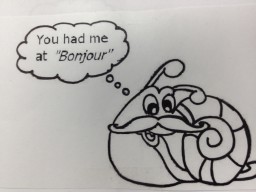Amazing!
Everyone Has an Accent | Teaching Tolerance
Such a fantastic question!
Looking at the Same and Seeing Something Different: The Limitation of Being Part of One Culture
So much good info!
The French Approach to “Anti-Racism” — Pretty Words and Magical Thinking
I first came to France twelve years ago during my junior year abroad. I was the first person in my family to get a passport and I could barely contain my excitement. In the winter of 2003, two years before the riots that followed the untimely deaths of 15 year old Zyed Benna and 17 year old Bouna Traore, I landed in Paris bright-eyed and bushy tailed, armed with a very shaky grasp of French and a naive fascination with this beautiful country.
As an African-American, I was vaguely aware that France did not deal with issues of race the way we do in the United States. And when I happened to forget, French white people were keen to remind me. In one of the sociology classes I took at a university in the south of France, I hesitantly raised my hand to ask a question. The white French professor had…
View original post 2,572 more words
Speech Communication Process
educational research techniques
Communicating is at times an intimidating experience for people. This is especially true if they are asked to speak in public. Public Speaking or communicating in general is comprised of several elements. These elements include
- Speaker
- Message
- Channel
- Listener
- Feedback
- Interference
- Situation
Speaker & Message
The speaker is the one who is attempting to share a message. A successful speaker needs to be convincing as well as possess authoritative knowledge of their topic. In addition, a speaker should have some enthusiasm for what they are sharing. We have been in the presence of a boring expert. A person who had knowledge but lack the energy to deliver the content in way that was engaging.
The speaker also possesses the message or what they are sharing. The success of the message depends on the organizational skills of the speaker. The main points need to be clear and understandable. Ideas and supporting…
View original post 353 more words
Listening: Part I
Exact!
educational research techniques
Listening is something that everyone spends a lot of time doing. Listening is actually the act of closely paying attention to and comprehending what one hears. The act of listening is different from hearing. Hearing is just the sounds that the ear picks up in everyday life while listening is paying attention to those sounds, such as speech, and making sense of them.
In this post, we will look different types of listening.
Types of Listening
According to Lucas (2015) there are at least four types of listening and they include
- Empathic
- Appreciative
- Comprehensive
- Critical
Empathic Listening
Empathic listening is listening to provide emotional support for the speaker. An example, would be a mother listening to an upset child or a teacher listening to a student who is having a difficult time. The purpose of this type of listening is to provide attention for the purpose of soothing the individual.
View original post 258 more words
Listening Part II: Why We Struggle to Listen
Listening is an art to be developed!
educational research techniques
Listening serves the purpose of not only hearing what someone says but comprehending it as well. However, according to Lucas (2015) there are also several factors that contribute to a person listening poorly. The reasons for poor listening include the following…
- Poor concentration
- Concentrating too much
- Making conclusion in advanced
Poor Concentration
Listening is not always an exciting experience. For this reason, people minds may wander while someone is talking. People normally do not totally stop listening. Instead, they listen, stop listening, and listen again. This indicates that they get bits and pieces of the content, which can actually make things even more confusing.
People can also be distracted for other reasons. For example, people can be distracted by the appearance of the speaker or by the way they talk. We all have stories of times we could not remember what a person said because of what they were wearing…
View original post 312 more words

